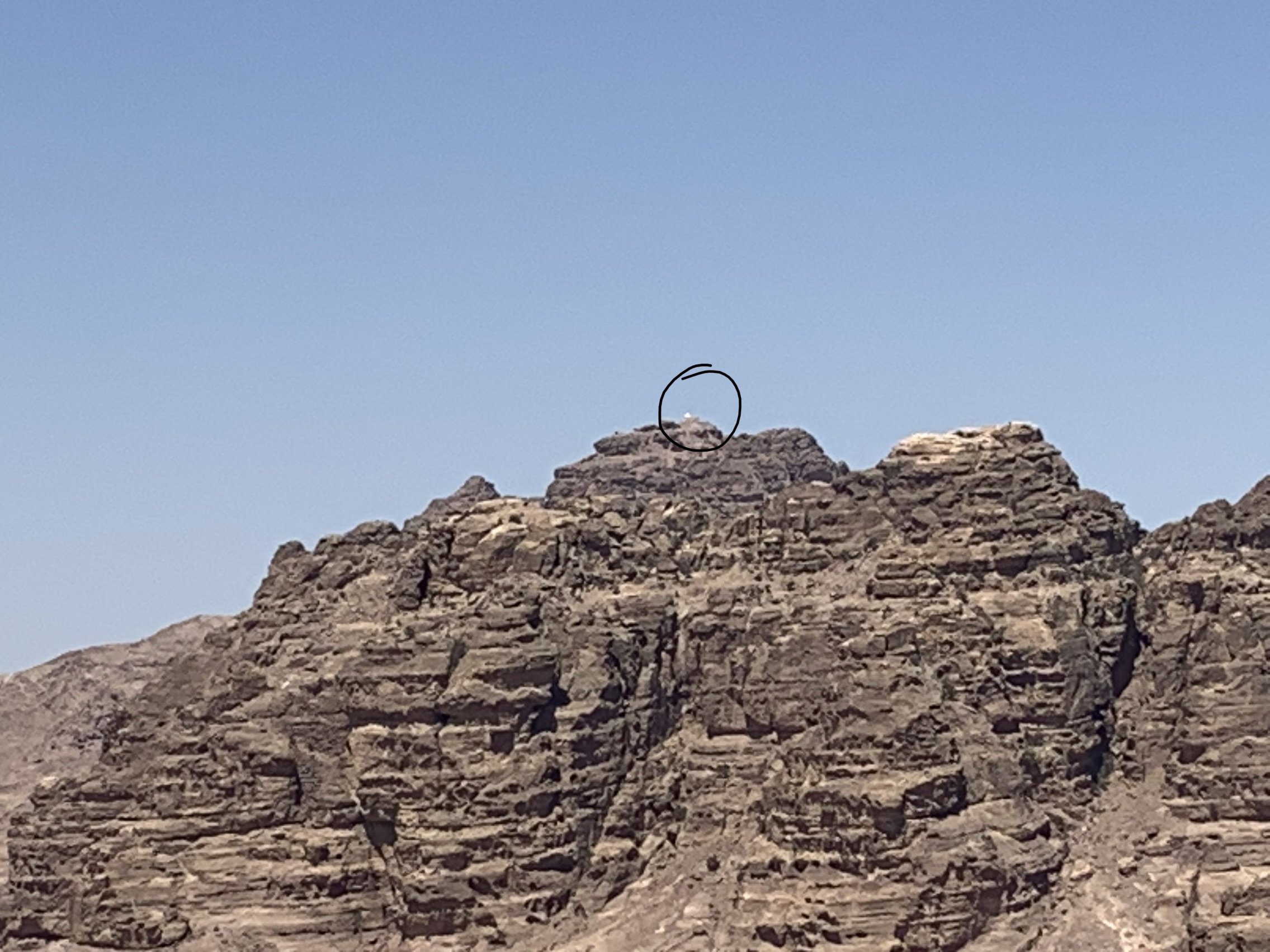Readings for today: Deuteronomy 31-34
As we finish the Book of Deuteronomy, we need to pause for a moment and reflect on the life of Moses. Miraculously saved at birth. Raised in the palace of Pharaoh. Exiled for murder. Bedouin shepherd. Husband. Father. Called late in life to save Israel. Prophet. Miracle-worker. Deliverer. Spiritual and political leader of a nation of wandering ex-slaves. His life, especially the last third, was marked uniquely by his close relationship with God. Now we are at the end. Now the people stand on the borders of the Promised Land. Now he’s on a mountain looking over at the fulfillment of all God has promised. Now is his last chance to share with his people all he has learned in his 120 years of walking with the Lord. So Moses sings them a song...(Deut. 32:1-43 MSG)
“Listen, Heavens, I have something to tell you. Attention, Earth, I’ve got a mouth full of words. My teaching, let it fall like a gentle rain, my words arrive like morning dew, Like a sprinkling rain on new grass, like spring showers on the garden. For it’s God’s Name I’m preaching— respond to the greatness of our God! The Rock: His works are perfect, and the way he works is fair and just; A God you can depend upon, no exceptions, a straight-arrow God…” For Moses, everything begins with God. God’s faithfulness. God’s steadfast love. God’s enduring grace. Without God, he is nothing. Without God, the people of Israel are nothing. Without God, they would still be slaves in Egypt. If God had abandoned them, they would have died in the wilderness. If Moses is going to sing about anything, it will be about the greatness of God! The glory of God! The majesty of God!
“His messed-up, mixed-up children, his non-children, throw mud at him but none of it sticks. Don’t you realize it is God you are treating like this? This is crazy; don’t you have any sense of reverence? Isn’t this your father who created you, who made you and gave you a place on Earth? Read up on what happened before you were born; dig into the past, understand your roots. Ask your parents what it was like before you were born; ask the old-ones, they’ll tell you a thing or two.” Moses also sings of the people he has served. He boldly reminds them of the truth. They are sinners. They are broken. They are rebellious. They despised God. They abandoned God. They doubted God. They disobeyed God. He sings, eyes wide open to the reality of their condition. He pulls no punches. He’s not interested in sentimentality. This is his last chance to speak and he’s not going to waste words on empty flattery.
“When the High God gave the nations their stake, gave them their place on Earth, He put each of the peoples within boundaries under the care of divine guardians. But God himself took charge of his people, took Jacob on as his personal concern. He found him out in the wilderness, in an empty, windswept wasteland. He threw his arms around him, lavished attention on him, guarding him as the apple of his eye. He was like an eagle hovering over its nest, overshadowing its young, Then spreading its wings, lifting them into the air, teaching them to fly. God alone led him; there was not a foreign god in sight. God lifted him onto the hilltops, so he could feast on the crops in the fields. He fed him honey from the rock, oil from granite crags, Curds of cattle and the milk of sheep, the choice cuts of lambs and goats, Fine Bashan rams, high-quality wheat, and the blood of grapes: you drank good wine!” Moses takes them back to God. It was God who first called Jacob. Found him in the wilderness. Loved him. Nursed him. Cared for him. Taught him how to walk. Taught him how to live. Guided him along the way. Always protecting. Always providing.
“Jeshurun put on weight and bucked; you got fat, became obese, a tub of lard. He abandoned the God who made him, he mocked the Rock of his salvation. They made him jealous with their foreign trendy gods, and with obscenities they vexed him no end. They sacrificed to no-god demons, gods they knew nothing about, The latest in gods, fresh from the market, gods your ancestors would never call “gods.” You walked out on the Rock who gave you your life, forgot the birth-God who brought you into the world.” What was the response of the people? Again, rebellion. As they grew strong and prosperous, they forgot God. They started going their own way. Doing their own thing. Forgetting God. Seeking to be their own gods. They repeated the sin of Adam and Eve. They fell for the original temptation of the evil one. They gave in, wanting to live like gods themselves.
“God saw it and spun around, angered and hurt by his sons and daughters. He said, “From now on I’m looking the other way. Wait and see what happens to them…” God judged them. Disciplined them in his wrath. He sought to purify and sanctify them through suffering. Through exile. Through wandering. Through defeat. He was faithful to remind them they held no power of their own. They had no strength of their own. All they had achieved had come via the mercies of God. He would not allow their illusions and self-deceptions to stand.
“Yes, God will judge his people, but oh how compassionately he’ll do it. When he sees their weakened plight and there is no one left, slave or free…He’ll say, “Do you see it now? Do you see that I’m the one? Do you see that there’s no other god beside me? I bring death and I give life, I wound and I heal— there is no getting away from or around me! I raise my hand in solemn oath; I say, ‘I’m always around. By that very life I promise…Celebrate, nations, join the praise of his people. He avenges the deaths of his servants, Pays back his enemies with vengeance, and cleanses his land for his people.” It took God forty years to bring his people to their knees. But the long years of wandering were not in vain. Now they knew God. Now they saw God. Now they understood God. They submitted. They surrendered. They repented. And they were ready to enter the land He had promised.
Friends, this isn’t just Moses’ story. It’s not just Israel’s story. It’s my story. It’s your story. And this begs a really important question...when the years grow short and your strength begins to fail and you’re surrounded by your family and those you love, what song will you sing? Will you sing of God and His great faithfulness? Will you sing of His mercies and kindness? Will you declare His glory and majesty? Will you make known His mighty works to the next generation? What song will you sing?
Readings for tomorrow: Joshua 1-2, Psalm 105










